
Copernical Team
SpaceX and T-Mobile unveil satellite plan to end cellphone 'dead zones'
 Elon Musk's SpaceX satellites will connect directly to T-Mobile cellphones to provide service access even in the most remote places beyond the reach of cell towers from next year, the two companies announced Thursday.
The new service, which will work on existing cellphones and utilize SpaceX's network of thousands of Starlink satellites in Earth's orbit, will begin offering text messaging se
Elon Musk's SpaceX satellites will connect directly to T-Mobile cellphones to provide service access even in the most remote places beyond the reach of cell towers from next year, the two companies announced Thursday.
The new service, which will work on existing cellphones and utilize SpaceX's network of thousands of Starlink satellites in Earth's orbit, will begin offering text messaging se Webb telescope finds CO2 for first time in exoplanet atmosphere
 The months-old James Webb Space Telescope has added another major scientific discovery to its growing list: detecting for the first time signs of carbon dioxide in the atmosphere of a planet outside our solar system.
Although the exoplanet would never be able to support life as we know it, the successful discovery of CO2 gives researchers hope that similar observations could be carried out o
The months-old James Webb Space Telescope has added another major scientific discovery to its growing list: detecting for the first time signs of carbon dioxide in the atmosphere of a planet outside our solar system.
Although the exoplanet would never be able to support life as we know it, the successful discovery of CO2 gives researchers hope that similar observations could be carried out o Boeing eyes February for space capsule's first crewed flight
 The first crewed flight of Boeing's space capsule Starliner is scheduled for February 2023, the company and NASA announced Thursday, as the United States seeks to secure a second way for its astronauts to reach the International Space Station.
Since 2020, American astronauts have traveled to the ISS aboard SpaceX's vessels but the US space agency wants to widen its options.
After a serie
The first crewed flight of Boeing's space capsule Starliner is scheduled for February 2023, the company and NASA announced Thursday, as the United States seeks to secure a second way for its astronauts to reach the International Space Station.
Since 2020, American astronauts have traveled to the ISS aboard SpaceX's vessels but the US space agency wants to widen its options.
After a serie Boeing astronaut flight off until next year for more fixes
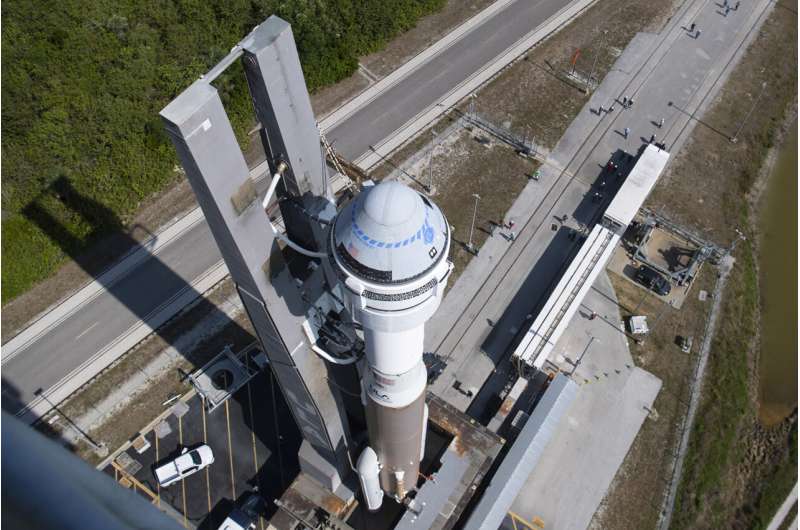
NASA shares 'spectacular" image of the southern lights from International Space Station
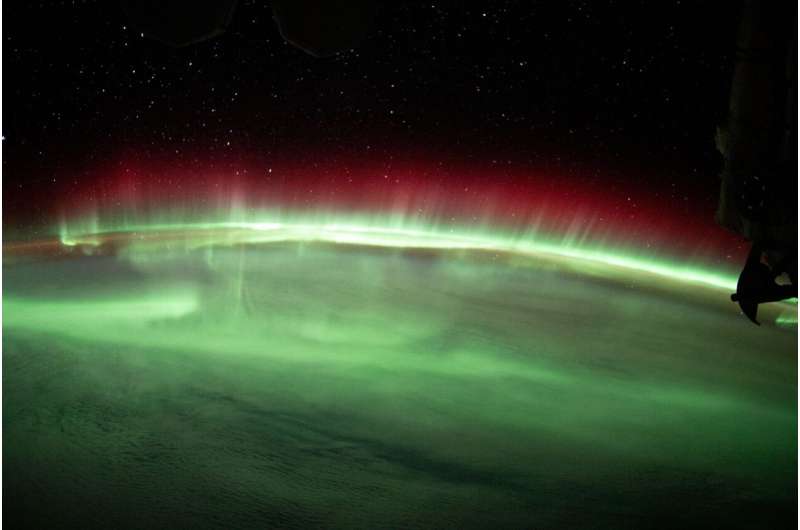
Is NASA campaigning to have the galaxy's best Instagram page? It sure seems that way with the latest images from the James Webb Space Telescope of Jupiter and last month's stunning shots of the Carina Nebula and Southern Ring Nebula.
And now, the space agency is sharing a remarkable image of the southern lights, or aurora australis, taken from the International Space Station.
The southern lights, which are similar to the aurora borealis, can be seen best from Tasmania, New Zealand and Antarctica, according to Smithsonian Magazine.
Astronauts going to Mars will receive many lifetimes worth of radiation
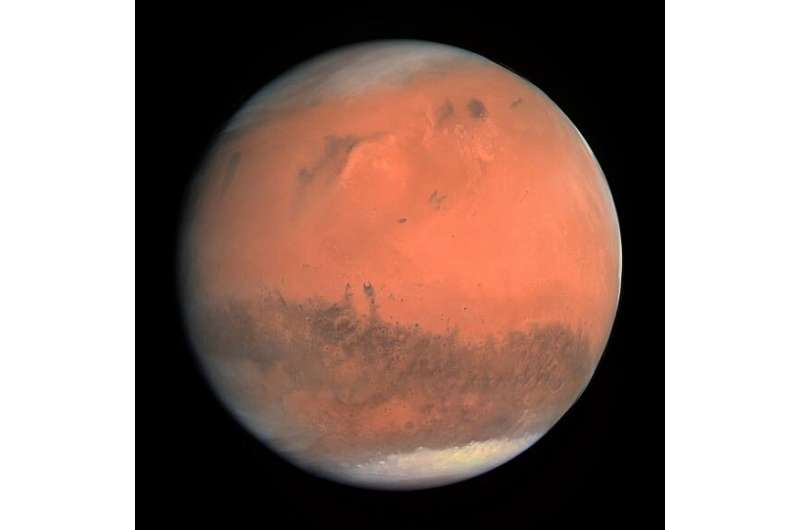
In a recent study to be published in Space Physics, an international team of researchers discuss an in-depth study examining the long-term physiological effects of solar radiation on astronauts with emphasis on future astronauts traveling to Mars to include steps we can take to help mitigate the risk of such solar radiation exposure. The researchers hailed from the United Arab Emirates, New Zealand, India, United States, Italy, Greece, and Germany, and their study helps us better understand the in-depth, long-term health impacts of astronauts during long-term space missions, specifically to Mars and beyond.
"Exposure to ionizing radiation is one of the main health risks to astronauts in crewed missions to Mars," said Dr. Dimitra Atri, a Research Scientist at New York University Abu Dhabi, and lead author of the study. "Going to Mars is going to be humanity's ultimate adventure in the 21st century—it would be unfortunate if the mission is successful, but astronauts suffer major health issues or even die because of radiation exposure.
NASA engineer develops tiny, high-powered laser to find water on the moon

Finding water on the moon could be easier with a Goddard technology that uses an effect called quantum tunneling to generate a high-powered terahertz laser, filling a gap in existing laser technology.
Locating water and other resources is a NASA priority crucial to exploring Earth's natural satellite and other objects in the solar system and beyond. Previous experiments inferred, then confirmed the existence of small amounts of water across the moon. However, most technologies do not distinguish among water, free hydrogen ions, and hydroxyl, as the broadband detectors used cannot distinguish between the different volatiles.
Watch live: Artemis I Moon launch
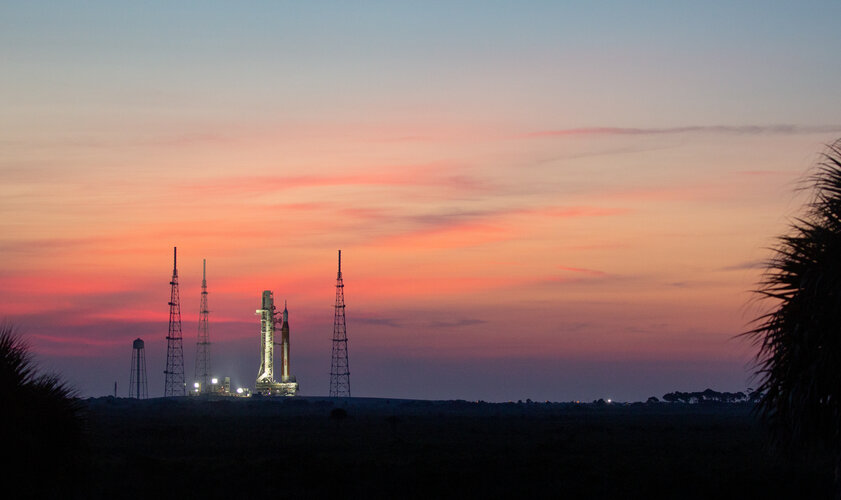
The countdown has started for the first human-rated launch to the Moon in over half a century. ESA’s European Service Module will be powering the Orion spacecraft to our natural satellite and back.
Webb detects carbon dioxide in exoplanet atmosphere
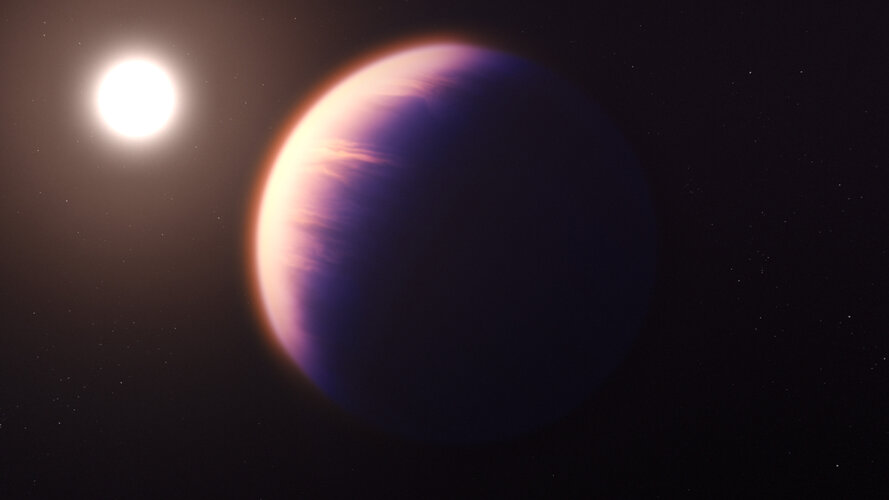
The NASA/ESA/CSA James Webb Space Telescope has found definitive evidence for carbon dioxide in the atmosphere of a gas giant planet orbiting a Sun-like star 700 light-years away. The result provides important insights into the composition and formation of the planet, and is indicative of Webb’s ability to also detect and measure carbon dioxide in the thinner atmospheres of smaller rocky planets.
Keele researchers study turbulence raging inside distant stars
 Stunning new images created by Keele researchers highlight the turbulent flow of energy inside distant stars.
They were created using the 3D simulation software "PROMPI", which scientists have been using to investigate stellar interiors with the aim of understanding the science of stellar evolution and black holes.
For years scientists have used one-dimensional models to explain and
Stunning new images created by Keele researchers highlight the turbulent flow of energy inside distant stars.
They were created using the 3D simulation software "PROMPI", which scientists have been using to investigate stellar interiors with the aim of understanding the science of stellar evolution and black holes.
For years scientists have used one-dimensional models to explain and 
